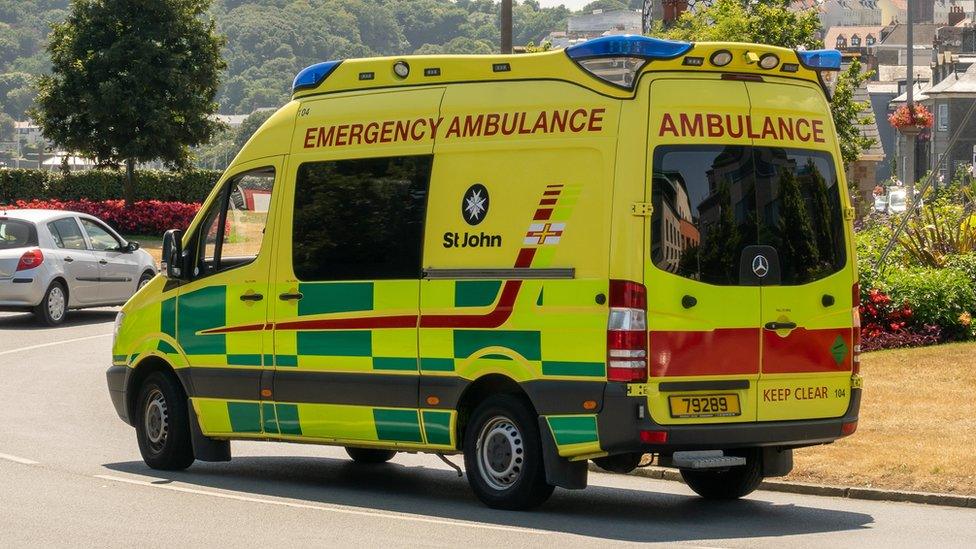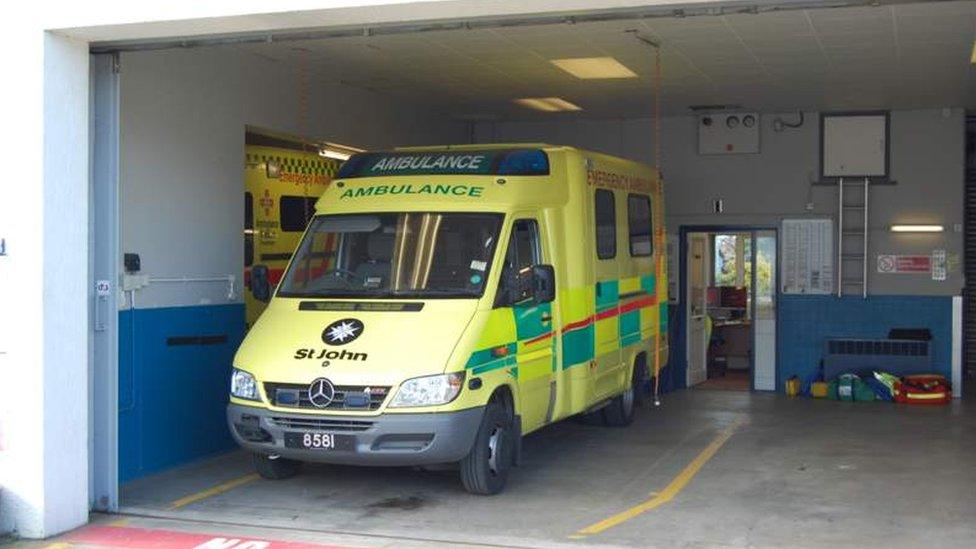Guernsey ambulance service had busiest year ever in 2021
- Published

Ambulance bosses said they had seen more demand and costs had increased
Guernsey's ambulance service had its busiest ever year in 2021.
St John Emergency Ambulance Service said it responded to almost 7,000 calls over the year - the most it has ever had in its 85-year history.
Ambulance bosses are now expecting another busy period in 2022 with "a combination of seasonal pressures, changing demographics and with the ongoing impact of the Covid pandemic".
They want the public to understand how the service prioritises incoming calls.
Head of operations, Dean de la Mare said: "We want islanders to be reassured that if you need an ambulance, you will get one - and for life-threatening illnesses or injuries, which are the most urgent and highest category of call, you will get an immediate response and the ambulance will come with lights and sirens.
"However, for less urgent calls the average response time will be longer and the ambulance will travel at normal road speed so may take longer to arrive."

The ambulance service places calls in four categories:
Category One - people with life-threatening injuries and illnesses which include cardiac arrests, unconscious patients and patients who are having an active convulsion. The service aims to reach these calls within eight minutes of being alerted
Category Two - all other emergencies, these include patients with breathing difficulties, chest pain, severe bleeding and strokes. The service aims to reach these calls within 14 minutes
Category Three - urgent calls which include diabetes, faints and uninjured patients who have fallen. The service aims to reach these calls within 30 minutes
Category Four - less urgent calls such as patients who have diarrhoea and vomiting or a urinary infection, for which the service aims to attend within two hours

Mr de la Mare said: "No-one should ever be put off phoning for an ambulance in an emergency, because prompt pre-hospital medical intervention can save a life and reduce complications later on."
He said overall the ambulance service had coped well with the increase in demand.
However he added: "The contingency measures we have in place to deploy senior ambulance officers to frontline duties and call off-duty staff back to the ambulance station have worked well, but when we experience high demand, it may mean patients with less serious complaints could have to wait longer for the ambulance."

Follow BBC Guernsey on Twitter, external and Facebook, external. Send your story ideas to channel.islands@bbc.co.uk, external.
Related topics
- Published29 September 2021
